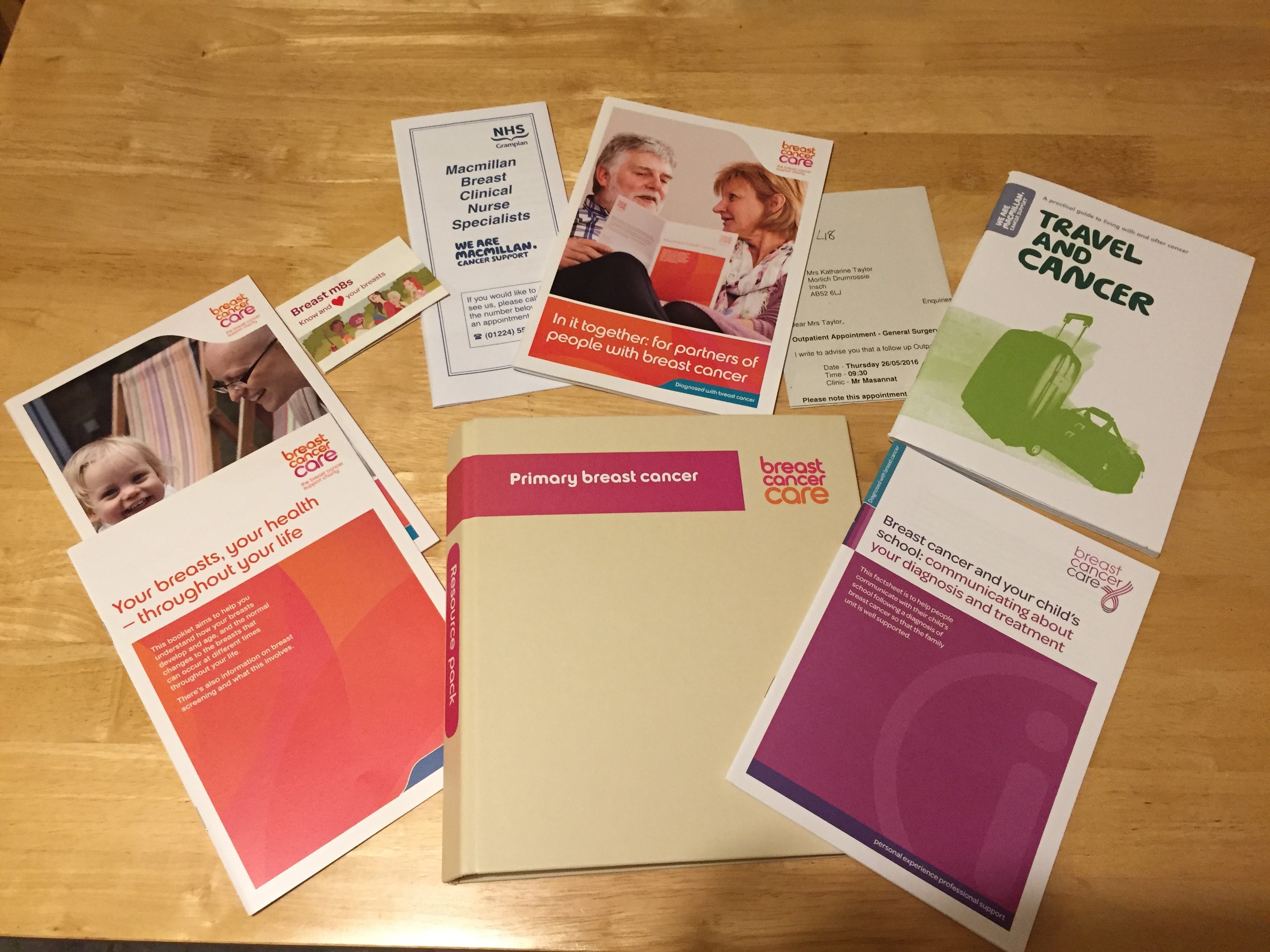I thought through in my mind regarding my general health and a niggle in my head made me mention the funny small brown patches that had started to appear on my skin in the last year or so and a number of moles that had got bigger over time. I felt a bit daft, but Fiona assured me that it was a natural reaction to start thinking wild thoughts. Mr Masannat asked to look at the patches and said that he thought that they looked entirely innocent, but that to be 100% sure I would need to see a Dermatologist.
I also told him that I had been plagued over the last couple of months with lower back pain. I have always been susceptible to back ache, but it definitely seemed to be far more intense and frequent recently. He asked me how active I was and I told him that I liked to walk, jog and cycle and that it was likely just a niggle from this. He agreed, but said that he could get me referred for a scan.
Mr Masannat then said his goodbyes and left us with Fiona. She then went through a lot of information and filled out forms going through my medical history and asking me questions about any previous breast cancer. I knew my grandmother had been diagnosed, but I had no idea with what type and what treatment she received, or how old she was. I guessed that she was in her 50s and Fiona said that as my mother and sister had not had cancer and my grandmother was over 50 when she got it, it was very unlikely that there was a genetic link, however, if I really wanted to pursue this, I could have tests done to establish for definite either way. I gave this some thought and decided that I did not think it was a good idea – to me it was not likely to be genetic and I didn’t want to unnecessarily open up a whole load of anxt with tests to see if my sister Annie, or daughter Laura were at risk. To my mind, even if there was a genetic link it didn’t mean you would definitely get it and I didn’t want them to be constantly worrying about
Finally, Fiona gave us a multitude of leaflets and booklets ranging from advice on how to tell your children, to a resource pack folder with information on all sorts of information about primary breast cancer from what it is, to diagnosis, having treatment, wellbeing and practical issues. She advised us to take it all home and go through the stuff together in our own time and then ask her any questions that might crop up. She was throughout very pragmatic and gave me a sense of confidence that we would be able to take this all in our stride and that the medical team would be there to help us every step of the way.
So, when Andrew and I left clutching all the leaflets, it was with a sense of quiet determination. We talked about it in the car on the way home and both of us were of the same mindset, that this did not need to be a complete catastrophe in our lives. That we would need to accept that we would have to get through the next 6 months/year the best we could and that we had no doubt that there would be challenges along the way, but that none of them would be insurmountable and that eventually this would all be put behind us.
Telling the family
The first challenge/quandary we faced was who to tell and how to tell them? We chatted about this and raised a number of considerations – should we worry the kids with this until we absolutely had to? Laura was in the middle of sitting her National 5 exams (GCSE equivalent in England), which were not due to finish for another week and she was also due to go away to Germany for two weeks on an exchange at the beginning of July. The last thing I wanted was for her to worry and stress about me at the expense of her own success/happiness.
We also considered which of our friends and family to tell and decided that we needed to give this some careful thought ….. and so this will be one of the topics that I’ll cover in the next instalment of my blog.
Not had a chance to read the previous post? Click here to read it.








